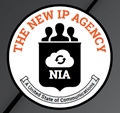Colt Says NIA Can Help Speed Up NFV Rollout
Service provider at forefront of NFV urges vendors to back the New IP Agency and help speed up NFV rollout.

PARIS -- MPLS/SDN/NFV World Congress -- Colt has urged network vendors to work together through the New IP Agency (NIA) to speed up NFV deployments by the service provider community.
Addressing attendees at this morning's MPLS/SDN/NFV World Congress in Paris, Nico Fischbach, the director of strategy, architecture and innovation for Colt Technology Services Group Ltd , said the The New IP Agency could develop reference models that would help the industry to avoid duplicating efforts.
"There is an opportunity for vendors to work together and this new group called the New IP Agency is doing interoperability testing," he said. "That is important for you as vendors, because you keep repeating the same parts."
Launched as a not-for-profit initiative earlier this year, the NIA aims to foster the development of virtualized IP networks based on open access principles.
The organization, whose membership ranks are growing quickly, has been carrying out interoperability testing on vendor equipment in partnership with the European Advanced Networking Test Center AG (EANTC) . (See Dell Swells NIA's Ranks and ZTE Commits to 'Openness' With NIA Membership.)
"Pick any service provider and all architects are running into the same problems," said Fischbach. "It's time for some reference models that people can refer to so they do not have to do everything from scratch."
Colt has emerged as something of a pioneer among service providers when it comes to the rollout of SDN and NFV technologies, but Fischbach has also been critical of vendors targeting this market. (See Colt Launches SDN-Based Data Center Offer and Colt Blames Vendors for NFV Holdups.)
"The whole platform stack -- the hypervisor and how you build all of this and orchestrate -- is overly complex," he said during his morning address. "To make NFV a reality we need all of those things to be compressed but we are still in expansion mode with everybody bringing their own ideas -- it's crazy."
Fischbach welcomed a recent bout of consolidation among vendors of SDN and NFV technologies, saying this would help to reduce some of the complexity, but complained about the proliferation of "working groups" and associations in the industry.
Among the deals of note, ADVA Optical Networking recently bought Overture Networks Inc. in a $35 million deal and Nokia acquired Nakina Systems. (See ADVA CEO: Overture Acquisition Adds to Our Open NFV Pitch and Nokia Snaps Up Nakina.)
Last year, of course, saw Nokia Corp. (NYSE: NOK)'s €15.6 billion ($17.1 billion) takeover of Alcatel-Lucent (NYSE: ALU) as well as a partnership between Cisco Systems Inc. (Nasdaq: CSCO) and Ericsson AB (Nasdaq: ERIC) aimed largely at addressing opportunities in the New IP area. (See Finn de Siècle for Alcatel-Lucent and Cisco + Ericsson: From Soup to Nuts.)
Find out more about the New IP Agency (NIA) at the NIA website or contact NIA director Jeff Hannah at [email protected].
Colt's biggest NFV challenge remains an overhaul of the back office, according to Fischbach. The operator has been recreating elements of this for a virtualized environment but ultimately wants to replace its legacy IT systems. "The industry still doesn't have enough concrete data about how you should build OSS and the MANO stack going forwards," said Fischbach.
Following similar remarks by other service providers, Fischbach also played down some of the attractions of SDN and NFV, arguing the technologies would not help to reduce costs -- at least initially -- as much as operators had originally anticipated. (See Orange Sours on Cost Benefits of NFV.)
"The reality is that business processes and integration slows you down," elaborated Fischbach.
Moreover, while SDN and NFV will help operators to address new customer demands for more "elastic" and on-demand services, they will not allow telcos to entirely reinvent themselves.
"The view you can turn a telco into a cloud provider won't happen," he told conference attendees. "You can't create DNA from scratch."
— Iain Morris, 

 , News Editor, Light Reading
, News Editor, Light Reading
Read more about:
EuropeAbout the Author(s)
You May Also Like




_International_Software_Products.jpeg?width=300&auto=webp&quality=80&disable=upscale)







